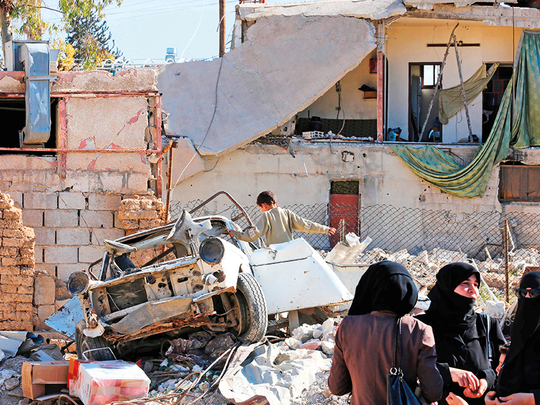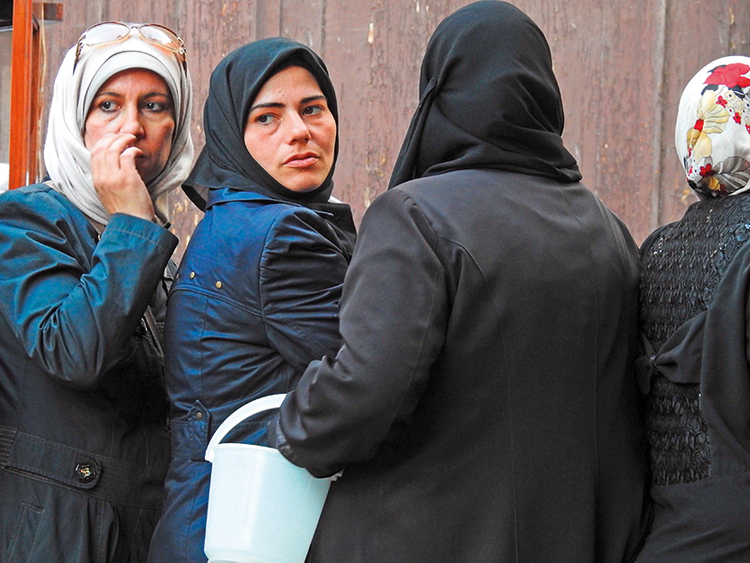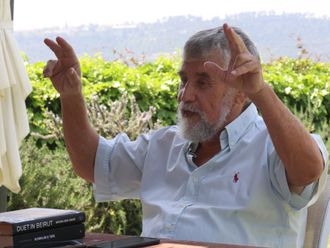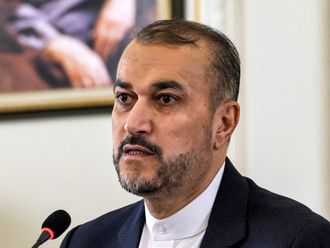
Damascus: “Nothing remains of Ramadan here, except its name” says a tearful Shaikh Mahmoud Zeidan, a retired mosque preacher from the city of Douma, now in his early 70s.
He was forced to leave his war-torn town on the outskirts of Damascus in February, when the battles of Eastern Ghouta climaxed, fleeing to nearby Damascus with his family.
Days before Ramadan started, they were allowed back into Douma, along with approximately 60,000 residents who accepted a Russian-sponsored reconciliation agreement, instead of being shipped off to faraway towns and cities in the Syrian northeast.
While they are happy to be back home, they extremely wary returning to the war-ravaged neighbourhood where many buildings have been reduced to piles of rubble and there is little employment opportunity.
The family has was one of the buildings that was gutted in air strikes and all his belongings are gone.
400
|
He has no proof that the house belongs to him which, under a law that was recently passed, could be consfiscated by the government if he fails to produce proof of ownership.
On top of that, his eldest son, Shams Al Deen, who had dodged his compulsory service in the Syrian army, has six months to formally enlist.
Not only does Zeidan worry about his son’s safety but by enlisting, the family will lose its only bread-winner.
He currently works at a laundry shop in Al Midan, outside the walled Old City.
Zeidan’s meager state pension for his 25 years of police service can barely cover the necessitiies.
This is especially painful during the holy month of Ramadan where families are supposed to celebrate and enjoy family iftars together.
- Mahmoud Zeidan | Mosque preacher
However, for Zeidan, his wife and four children they are unsure where their next meal will come from.
“We go to the gates of the Umayyad Mosque every day at noon, where they give us what the charity organisations have gathered. Sometimes its eggs and milk, and others, its yogurt and cheese, or burghol” his daughter, Kokab, tells Gulf News.
“With the few commodities father’s pension can buy we are able to piece together somewhat of an iftar.”
However, the traditional iftars they used to have are now hard to come by.
Salad is unaffordable as lettuce costs 100 SP, a kilo of tomatoes costs 300 SP and a kilo of cucumbers costs 400 SP making a grand total of 800 SP which is 10 times the cost it was six years ago.
If the family were to have salad everyday it would cost them a whopping 24,000 SP o4r 57 USD which is 75 per cent of the family’s current income.
For many in war-torn Syria, meat is considered a luxury item.
“I actually forgot what it tastes like,” Zeidan says.
“Before the war I was able to afford one kilo of meat during Ramadan when it cost 500 SP but now it costs 7,000 SP.”
Reminiscing about the past, Zeidan recalls how Ramadan used to feel more spiritual.
“People took care of the poor and the needy and respected each other but now people are smoking and eating in in the streets,” he said.
A reason for this could be that people want to renounce any Islamic leanings because much of the Syrian opposition who rose up against the government were Islamists.
“Its a disgrace! Restaurants never opened before iftar. Now rarely do you find a restaurant that is closed during the day and all of them are full,” he says.
“If it weren’t for the support we get from fa’ileen kheir (Good Doers) our situation would be beyond miserable” he told Gulf News.













